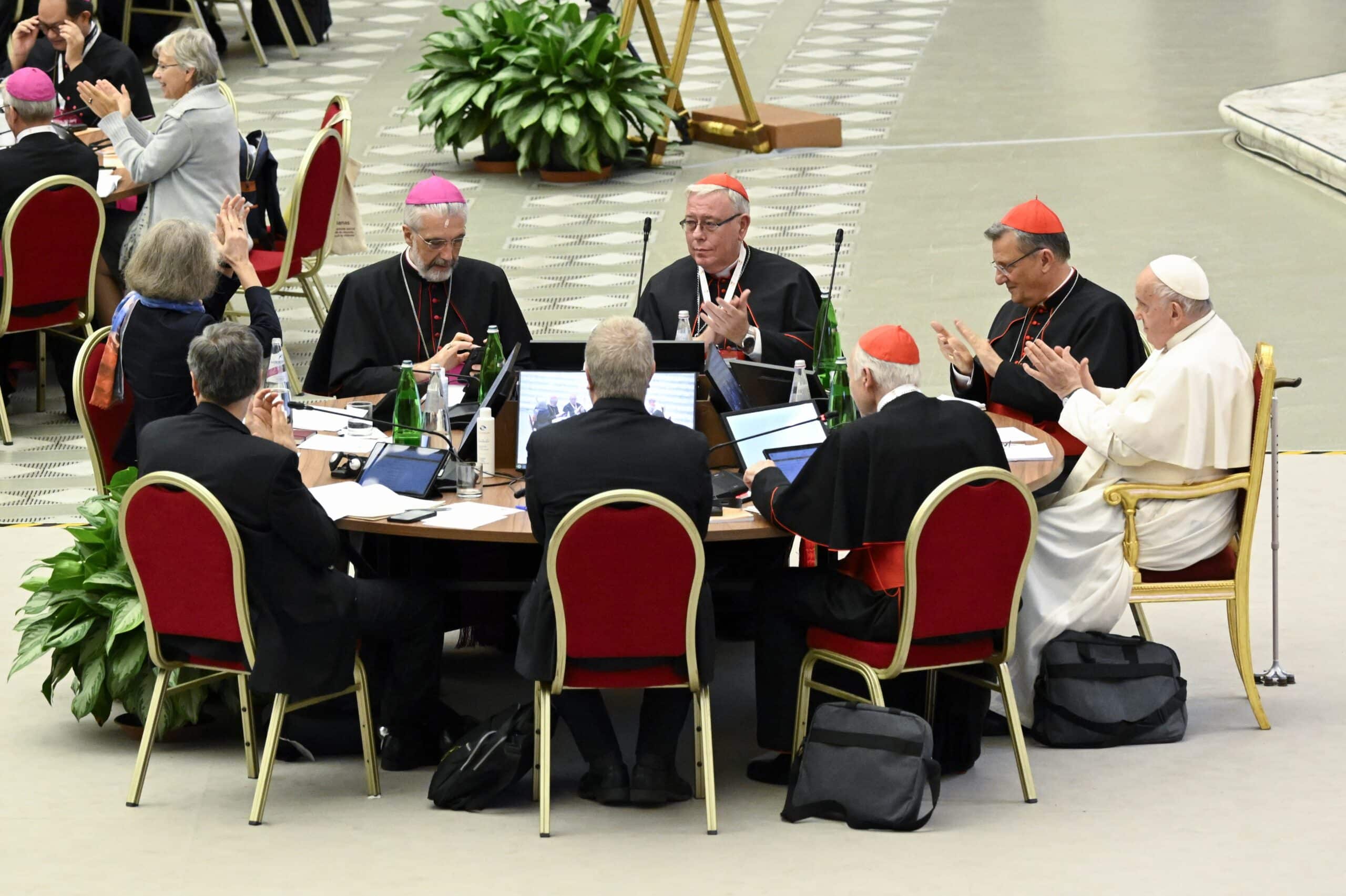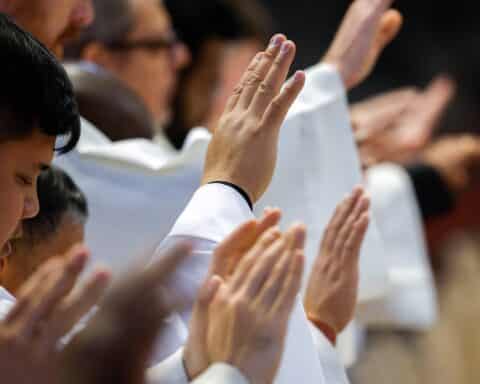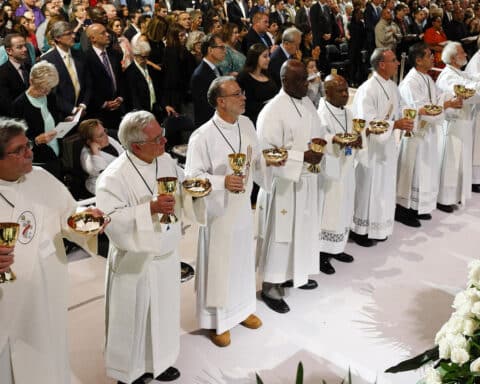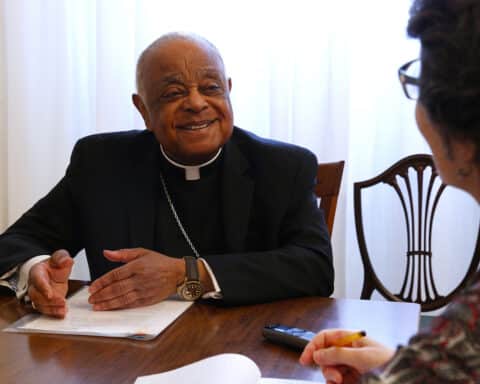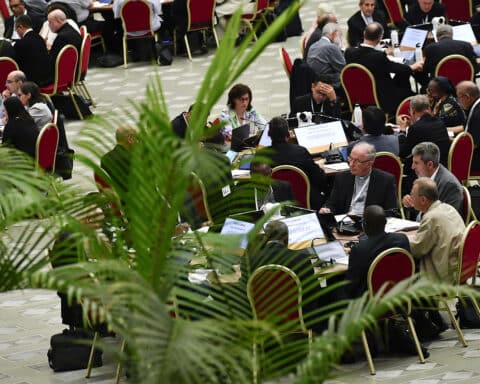VATICAN CITY (CNS) — While some of the issues discussed at the Synod on Synodality were judged to require further study, members came up with a list of things that can or should happen immediately and others that should be considered.
The suggestions, included in the synthesis report published Oct. 28, included regular evaluations of parish priests, bishops and even nuncios.
For example, it said that “it is necessary to implement, in forms legally yet to be defined, structures and processes for regular review of the bishop’s performance, with reference to the style of his authority, the economic administration of the diocese’s assets and the functioning of participatory bodies and safeguarding against all possible kinds of abuse.”
“A culture of accountability is an integral part of a synodal Church that promotes co-responsibility, as well as safeguarding against abuses,” it added.
All of the suggestions and other parts of the synthesis document passed by the needed two-thirds vote of assembly members. The idea of a review of bishops’ performance passed 317-29.
Ecumenism, lay participation
Members said canon law should be changed to make diocesan pastoral councils mandatory and not simply recommended.
Responding to a “widely reported need to make liturgical language more accessible to the faithful and more embodied in the diversity of cultures,” the members said national bishops’ conferences should have greater responsibility for translations and adaptations with less Vatican control, a process Pope Francis already began in 2017 with his document “Magnum Principium” (“The Great Principle”).
The assembly asked for a greater commitment to “combating racism and xenophobia, especially through pastoral formation” and to offering more programs to integrate migrants and refugees.
The synthesis called for the establishment of “a permanent Council of the Patriarchs and Major Archbishops of the Eastern Catholic Churches to the Holy Father” to discuss issues of concern and ensure the needs and gifts of Eastern Catholics are at the heart of the church.
Assembly members asked for greater involvement of laypeople and religious in the consultations that take place regionally and nationally when identifying potential candidates for the office of diocesan bishop
Members noted that in 2025 Easter will be celebrated on the same Sunday according to the Gregorian and Julian calendars used by Western and Eastern Christians. “The Assembly expressed a keen desire to come to a common date for the feast of Easter so that we can celebrate the Resurrection of the Lord, our life and our salvation, on the same day,” the report said.
Authority and formation
With Pope Francis appointing women to positions of authority at the Vatican, members said more of the same must be done on a diocesan level.
They also said that “labor injustice and unfair remuneration within the Church need to be addressed, especially for women in consecrated life, who are too often treated as cheap labor.”
Many of the suggestions involve greater education and formation opportunities for all church members and special attention to the selection and formation of candidates for the priesthood to “avoid creating an artificial environment, separated from the shared life of the faithful.”
Acknowledging the ministry many people, mostly young, already are doing, the assembly members said there is need “to provide opportunities for recognizing, forming and accompanying those already working as digital missionaries” and facilitating their networking with each other.

